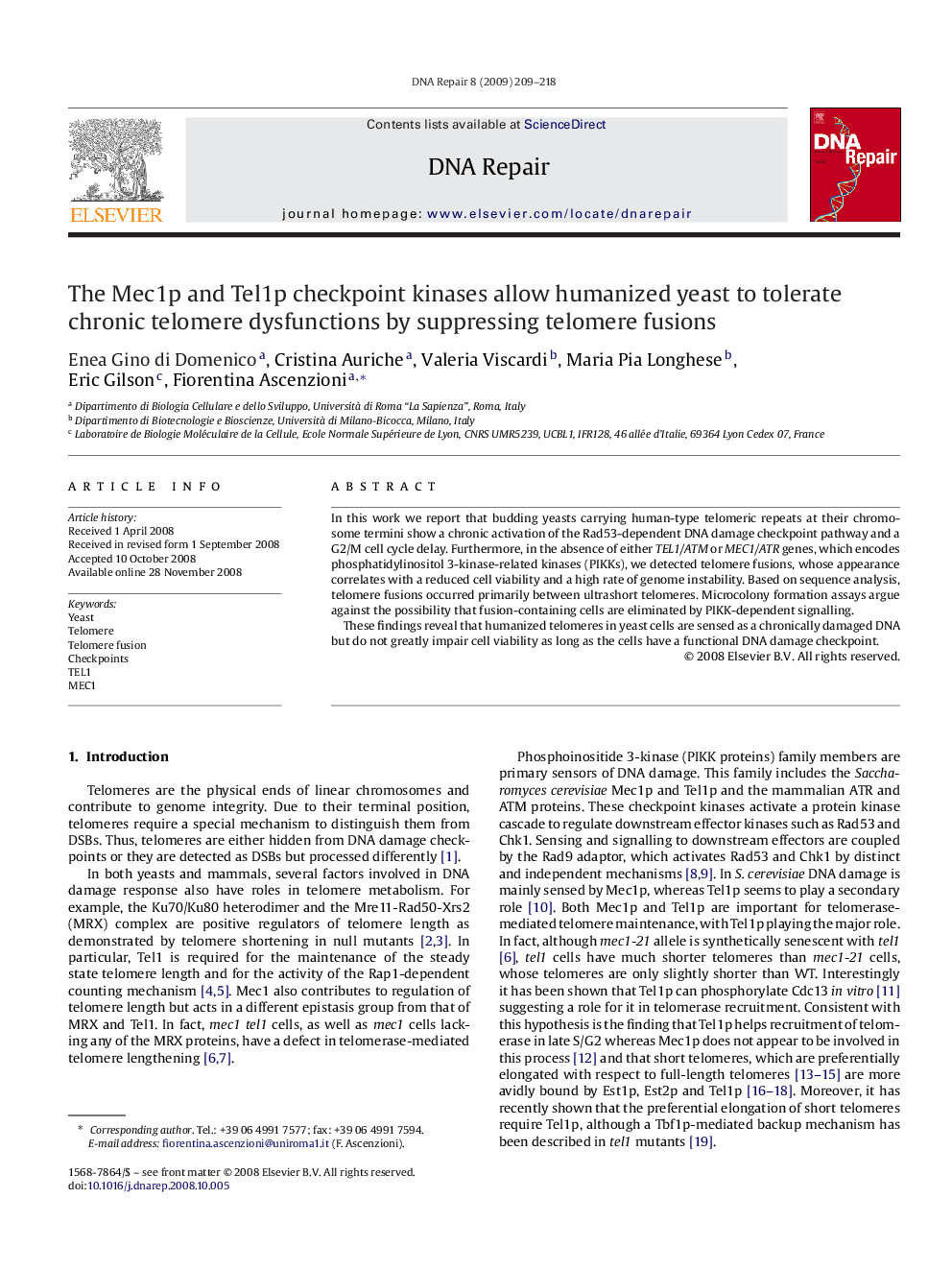| Article ID | Journal | Published Year | Pages | File Type |
|---|---|---|---|---|
| 1980756 | DNA Repair | 2009 | 10 Pages |
In this work we report that budding yeasts carrying human-type telomeric repeats at their chromosome termini show a chronic activation of the Rad53-dependent DNA damage checkpoint pathway and a G2/M cell cycle delay. Furthermore, in the absence of either TEL1/ATM or MEC1/ATR genes, which encodes phosphatidylinositol 3-kinase-related kinases (PIKKs), we detected telomere fusions, whose appearance correlates with a reduced cell viability and a high rate of genome instability. Based on sequence analysis, telomere fusions occurred primarily between ultrashort telomeres. Microcolony formation assays argue against the possibility that fusion-containing cells are eliminated by PIKK-dependent signalling.These findings reveal that humanized telomeres in yeast cells are sensed as a chronically damaged DNA but do not greatly impair cell viability as long as the cells have a functional DNA damage checkpoint.
